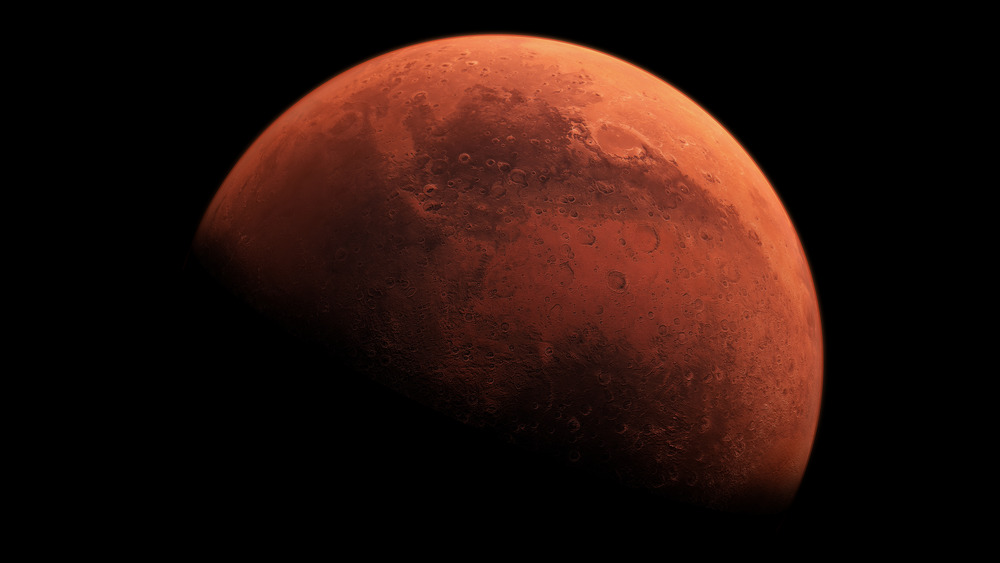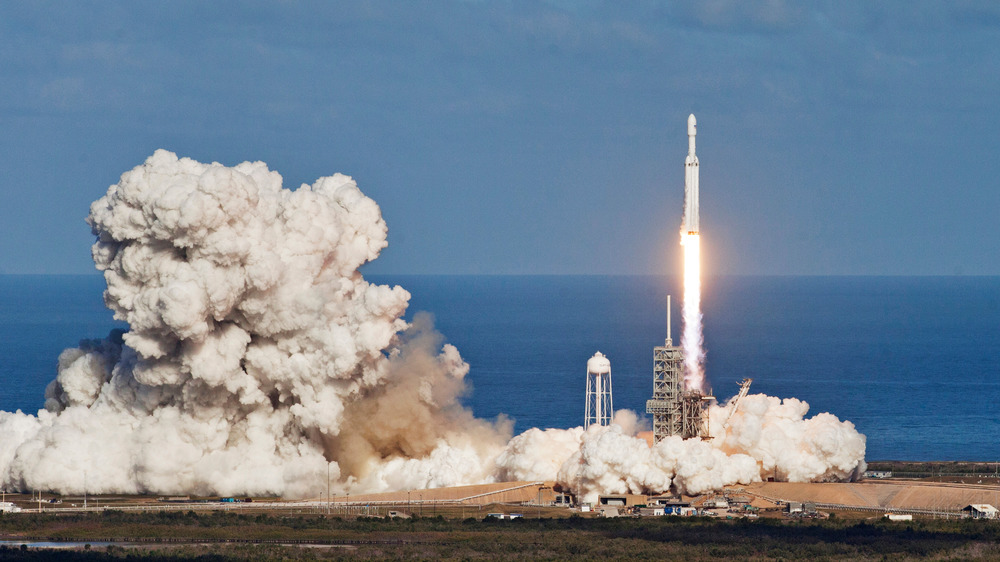This Is When Humans Are Scheduled To Set Foot On Mars
It's been over 50 years since humans first landed on the moon. In those 50 years, we've seen tremendous advancements in communications technology, medicine, energy, and more. But, in spite of this progress, we haven't been back to the moon since 1972 — let alone set foot on another planet.
In the 1960s, the future of space travel seemed far brighter. According to Sky at Night Magazine, Wernher von Braun — the German rocket scientist who led America's Apollo Program — was optimistic about manned space exploration. For von Braun, the Apollo Program was only supposed to be the beginning; he personally planned out a subsequent Mars mission scheduled to occur in the 1980s. Von Braun wasn't the only one; another NASA proposal considered conducting a manned flyby of the planet Venus in the mid-1970s. At that rate, humans could have visited more distant planets like Jupiter by the end of the century.
But science often doesn't go as planned. That was especially true for space science in America, which received a great deal of funding as a way to assert technological dominance over the Soviet Union. When the Cold War ended and the Soviet Union collapsed, manned space exploration fell to the wayside.
But, today, popular interest in space travel is once again at a peak. So, naturally, many of us are asking: "When will humans finally set foot on Mars?" This article will lay out the best estimates we have right now.
Elon Musk wants SpaceX to bring humans to Mars by 2026
While manned space exploration has historically been carried out by government agencies like NASA, the 21st century has seen an explosion in the influence of private space companies. These companies aren't always successful, however. Per Forbes, the investor-funded Mars One organization sought to land human volunteers on Mars in the early 2020s, but went bankrupt in 2019. (As Forbes explains, some have described Mars One as a scam, while others suggest its founders were extremely naïve.)
But one space giant has seen tremendous success and mainstream attention: SpaceX. Until now, SpaceX has focused on performing transport missions for agencies like NASA. But the company's founder, Elon Musk, has a bigger goal: He wants SpaceX to land the first humans on Mars. According to CNBC, Musk offered a potential timeframe for this plan during an awards show in December 2020. Musk said he was "highly confident" that SpaceX would land humans on the red planet "about six years from now"; "If we get lucky, maybe four years," he added.
That's a hopeful 2024, and a confident 2026 — an incredibly ambitious goal for an industry as uncertain as spaceflight. Nevertheless, Elon's goal does seem theoretically possible. Per the company's website, SpaceX would use a rocket called Starship for its Mars mission, and that rocket is currently in the testing phase. But, of course, building a rocket isn't enough; plenty of additional planning would be needed for a Mars mission to succeed.
NASA offers the more conservative estimate of 'in the 2030s'
While young companies tend to set ambitious goals, old-school agencies like NASA make more conservative plans. Sure, NASA would love to get humans to Mars as soon as possible — but that's a huge expense and would eat away at the budget for NASA's many other initiatives. Plus, with each new administration, NASA is handed down new goals and objectives, making it hard to keep up with the long-term planning required for something like a manned Mars mission. (Business Insider suggests that NASA under the Joe Biden administration will likely de-emphasize manned missions and focus on researching things like climate change.)
Even so, NASA does intend to send astronauts to Mars in the future. Per the agency's website, NASA's stated goal has been to land humans on Mars "in the 2030s," and that remains the case today. NASA's so-called "Journey to Mars" will follow several steps, including lots of biological research on board the International Space Station and a possible manned asteroid landing around 2025.
NASA's scheduled Mars landing is more distant and vague than that of SpaceX. Even so, it's quite possible that both organizations are being overly optimistic; the aftermath of the Space Race proves that the future of space exploration is hard to predict and estimates are constantly being pushed back. Thus, if we're told to expect a Mars landing in the next decade or two, maybe we'll get one by the middle of the century.


